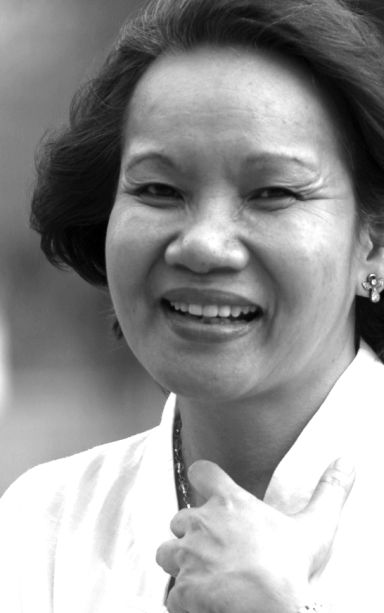
LOGARTA
Females have been treated badly because they have been viewed as second-class citizens, brainless, as not having a soul. They have also been seen as toys or objects of entertainment. In some cultures, they had been used to pay debts.
They have been auctioned like cattle in a market.
Some writers pity beautiful females because they are proudly shown around as priced property.
In medieval societies when there were no romantic considerations, there were property considerations — women were married for territorial expansion.
Commodification of women continues. But the difference is that we have been waging war against violence against women.
We join the “Eighteen-day Campaign Against Violence Against Women” by looking at how women have been viewed in different periods of our past.
Whenever I had to give an introduction in a learning session about sexual harassment, I used to remind them of our Asian heritage.
Then, we were very reverent and sensitive to presence. Males were quite fond of the women. They went out of their way to give pleasure to them, rather than just get pleasure out of them.
Colonialism with friar-power lowered the position of women. They were hardly educated because they were domesticated. Many of their moves were branded as flirtation: standing by the window displaying oneself, even smiling. Agoncillo declared that they were told to obey their husbands even when they were immoral.
But the enlightened propagandist Jose Rizal (perhaps because of an educated mother) believed that women should be educated and should strengthen themselves because it was their hands that rocked the cradle. So while in our day and age a brave young girl, Malala, got shot for working for the education for both females and males, we have Jose Rizal, who believed in the power of education, in the nineteenth century, rejoicing that the women of Malolos wanted to learn.
The revolutionary Emilio Jacinto in the Cartilla of the Katipunan reminds the members of treating women well, telling them they should remember their mother and sisters whenever the temptation to mistreat them occurs.
In this beautiful behavior guide, Jacinto asserts that women are partners as one goes through life. In their demand for equality, women were not excluded.
The supposedly egalitarian Americans opened schools to women even college education, but even the college-educated were denied the vote. Ines Villa-Gonzales strongly fought such discrimination.
What gives me inspiration is a key aspect of our Christian heritage. Jesus, who was born and reared in a strongly patriarchal culture, transcended this culture in his regard for women.
First of all, with Mary and Martha and with the Samaritan, He showed that females were persons with whom one can have a serious conversation. He was not condescending at all. In fact, He actually trusted them with spreading the Good News.
I also appreciate the way the gospel writers showed the faithfulness of the female followers of Jesus: how the women took risks to be by Jesus’ side while others rejected Him and mocked Him.
As we march together with our sisters all over the world to assert our human rights, let us draw strength from a history of brave struggle against those who wish to deprive us of them.
Disclaimer: The comments uploaded on this site do not necessarily represent or reflect the views of management and owner of Cebudailynews. We reserve the right to exclude comments that we deem to be inconsistent with our editorial standards.




